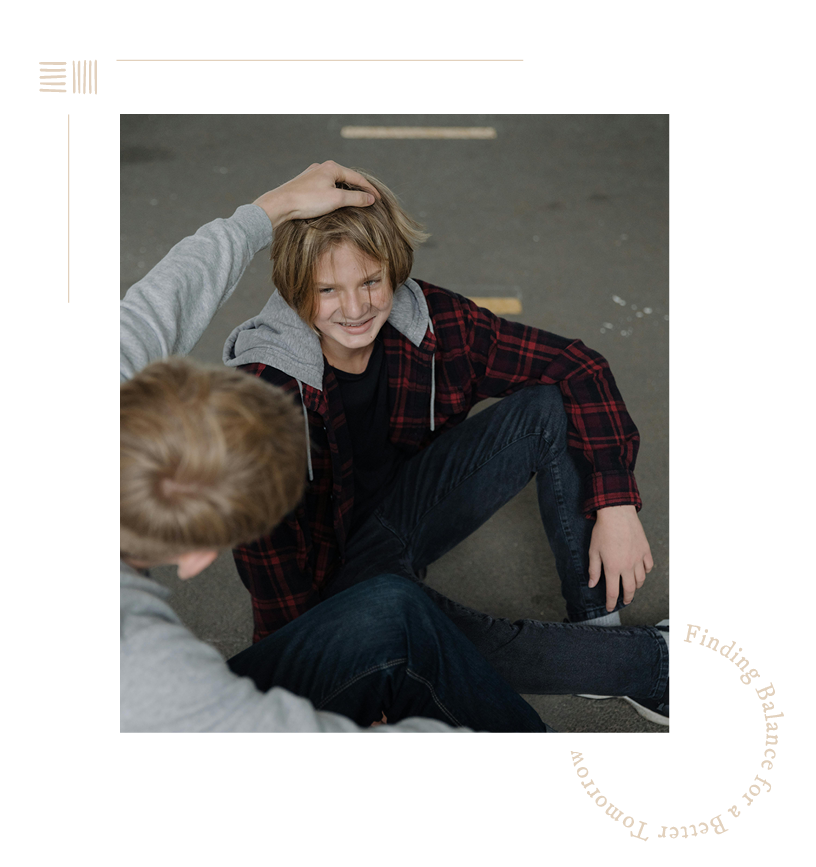
The Align Clinical Framework
At Align Adolescent Recovery, our clinical model is rooted in evidence-based therapeutic modalities. We’ve designed this approach to meet the unique emotional, psychological, and developmental needs of young men navigating substance use, mental health challenges, academic turmoil, and family disconnection.
This is a trauma-informed, relationship-driven, and family-integrated path to long-term recovery that is tailored to fit each individual.

Built on Compassion & Accountability
Treatment at Align isn’t just about managing behaviors—it’s about understanding what drives them. Many of the young men we work with are carrying unspoken grief, unresolved trauma, anxiety, depression, or identity confusion. Our clinical framework helps students identify the root of these challenges while developing new tools to cope, communicate, and lead with integrity.
Core Elements of the Align Clinical Model
Each student receives weekly individual therapy with a licensed clinician using evidence-based modalities including:
Cognitive Behavioral Therapy (CBT)
Dialectical Behavior Therapy (DBT)
EMDR (Eye Movement Desensitization and Reprocessing)
Motivational Interviewing
Group therapy reinforces emotional regulation, healthy communication, peer accountability, and shared support. Topics include trauma, grief, anger, anxiety, family conflict, and life transitions.
Family Systems Integration
We believe that healing happens in relationships. That’s why family engagement is central to our treatment model. Our family systems work includes:
- Weekly family therapy sessions
- Parent coaching and guided reading
- Therapeutic sibling involvement
- Structured family weekends
- Al-Anon participation to support caregiver recovery
We help families shift unhealthy patterns, rebuild trust, and prepare for a more connected future.
12-Step Recovery Integration
Align incorporates a robust, age-appropriate 12-Step framework that includes:
- Daily step work
- Off-site AA/NA meetings
- Sponsor engagement
- Young people’s recovery community participation
This provides structure, community, and spiritual grounding—core elements of long-term sobriety for teens.
Trauma-Informed, Developmentally Appropriate Care
Our staff is trained to recognize how trauma, neglect, or emotional overwhelm affect a teen’s ability to engage, trust, and grow. We prioritize:
- Emotional and physical safety
- Trust-building through consistency
- Empowerment through therapeutic choice
- Transparent, non-shaming clinical language
- Developmentally matched interventions for teenage boys
This approach allows teens to move from survival-based behaviors into self-awareness and stability.
Experiential & Somatic Therapy
Talk therapy is powerful but it’s only part of the equation. Our framework includes equine-assisted therapy, adventure programming, service work, and hands-on experiences that help students practice emotional regulation in real-time.
Through movement, nature, and experiential challenge, young men learn to reconnect with their bodies, interrupt negative patterns, and build emotional resilience.
Is This the Right Fit for Your Son?
We know choosing treatment is a huge decision. That’s why we’re committed to transparency, partnership, and clear clinical excellence every step of the way.
